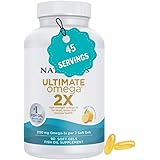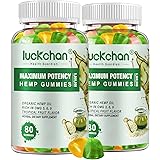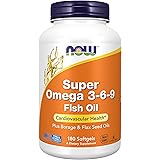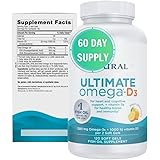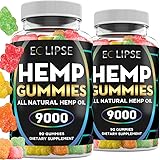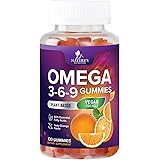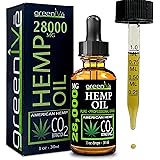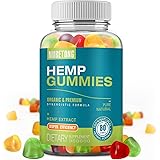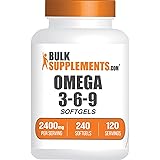The distinction between CBD oil vs hemp seed oil often remains a significant point of confusion for consumers, particularly within the burgeoning beard care market. Despite the similar nomenclature and shared botanical origin from the Cannabis Sativa plant, these two ingredients possess distinct profiles concerning their source, extraction methods, chemical composition, and ultimately, their benefits for skin and hair. A clear understanding of these differences is essential for making informed product choices, especially as the popularity of natural grooming solutions continues its upward trajectory.
Understanding the Legal Framework: The 2018 Farm Bill and Hemp
The landscape surrounding cannabis-derived products in the United States underwent a significant transformation with the enactment of the Agricultural Improvement Act of 2018, commonly known as the 2018 Farm Bill. This landmark legislation federally legalized the commercial production of hemp, explicitly defining it as a cannabis plant containing less than 0.3% delta-9 tetrahydrocannabinol (THC) on a dry weight basis. This legal distinction from marijuana, which contains 0.3% THC or more, has paved the way for a wide array of hemp-derived products, including both CBD oil and hemp seed oil.
Historically, prior legislative actions, such as the 1937 Tax Act and the 1970 Controlled Substances Act, had cast a broad prohibition over all cannabis varieties, stifling industrial hemp cultivation for decades. The recent shift underscores a recognition of hemp’s industrial versatility and therapeutic potential, aligning the U.S. with other nations like Canada and those in Europe, which have long recognized and utilized these botanical resources. The federal legality of hemp, however, does not always translate into a straightforward regulatory environment, as state-level regulations and banking policies can still present challenges for businesses operating in this evolving industry.
Hemp vs. Marijuana: Differentiating the Plant Sources
While both hemp and marijuana belong to the same species, Cannabis Sativa, their genetic makeup and cultivation practices lead to significantly different chemical profiles and end uses. Hemp is typically cultivated outdoors on a large scale, optimized for producing stalks and seeds, and crucially, bred to contain minimal THC. Marijuana, conversely, is often grown in more controlled indoor environments, focusing on maximizing cannabinoid production, particularly THC, in its flowers.
This fundamental difference in THC content—hemp consistently below 0.3% and marijuana typically much higher, often reaching 30% or more—is the primary legal and functional discriminator. Products derived from federally legal hemp are thus distinguished by their non-intoxicating properties, a key factor when considering CBD oil for beard care or other applications.
Extraction Matters: Sourcing CBD Oil and Hemp Seed Oil
The method by which these oils are extracted from the hemp plant directly influences their composition and therapeutic properties. Understanding these processes clarifies why CBD oil vs hemp seed oil is not merely a semantic debate.
-
Hemp Seed Oil Extraction: The Cold-Press Method
As its name suggests, hemp seed oil is derived exclusively from the seeds of the hemp plant. The extraction process is relatively straightforward and traditionally involves cold pressing. This mechanical method entails crushing the hemp seeds to express their rich oil content. The resulting oil is characterized by its distinct nutty flavor and dark to light green hue. Importantly, hemp seeds contain virtually no cannabinoids, including CBD and THC. Therefore, hemp seed oil for beard care is prized for its fatty acid profile, not for cannabinoid benefits. Trace amounts of THC might be present if the seeds come into contact with other parts of the plant during processing, but these levels are typically negligible and well below the legal threshold.
-
CBD Oil Extraction: Advanced Techniques for Cannabinoids
CBD oil, on the other hand, is primarily extracted from the trichome-rich flowers, leaves, and sometimes the stalks of the hemp plant. These parts are where cannabinoids, including cannabidiol (CBD), are most concentrated. The most common and preferred commercial extraction method for CBD is supercritical carbon dioxide (CO2) extraction. This sophisticated process utilizes CO2 under high pressure and low temperature to isolate and extract cannabinoids, terpenes, and other beneficial compounds from the plant material. This method is favored for its efficiency, purity, and ability to avoid harsh chemical solvents, ensuring a clean, high-quality end product.
Following CO2 extraction, the raw extract may undergo further refinement to produce different types of CBD oils: full-spectrum, broad-spectrum, or CBD isolate. Full-spectrum CBD contains all naturally occurring compounds of the hemp plant, including other cannabinoids, terpenes, and a legal trace amount of THC (less than 0.3%). Broad-spectrum CBD contains multiple cannabinoids and terpenes but has had all detectable THC removed. CBD isolate is pure CBD, with all other plant compounds removed. Each type offers distinct benefits, with the “entourage effect” often attributed to full-spectrum products due to the synergistic action of multiple compounds.
THC Content and Drug Testing Concerns
One of the most pressing concerns for consumers is the presence of THC in cannabis-derived products and its potential implications for drug testing. When contrasting CBD oil vs hemp seed oil, the difference in THC content is crucial.
Hemp seed oil, derived from seeds, inherently contains zero THC. Thus, its application in beard care products poses no risk of psychoactive effects or positive drug test results related to THC. It is a completely non-intoxicating ingredient.
With CBD oil, particularly full-spectrum varieties, the situation requires a nuanced understanding. By federal law, full-spectrum CBD oil for beard use or other applications must contain less than 0.3% THC. This minute concentration is generally considered insufficient to induce psychoactive effects. As illustrated by anecdotal evidence, an individual would need to consume an extraordinarily large quantity—for instance, hundreds of bottles of a CBD-infused topical product—in a single sitting to ingest enough THC to potentially fail a standard drug test or experience a “high.” This level of consumption is impractical and would likely lead to other adverse health effects long before any THC impact was noted. For topical applications like beard oils, the systemic absorption of THC is minimal, further mitigating any drug test concerns. Nevertheless, individuals with extreme sensitivity or those subject to strict drug testing policies may opt for broad-spectrum CBD or CBD isolate products, which are completely THC-free.
Comparative Benefits: Anti-Inflammatory Prowess for Beard and Skin Health
When evaluating the benefits of CBD oil vs hemp seed oil, especially for topical application on hair and skin, their primary shared advantage lies in their anti-inflammatory properties. Both are recognized for their capacity to soothe irritation and promote overall dermal health, which is critical for a healthy beard and the skin beneath it.
-
Hemp Seed Oil: A Foundational Carrier Oil
Hemp seed oil is renowned for its exceptional nutritional profile, rich in essential fatty acids like Omega-3 and Omega-6 in an optimal ratio, gamma-linolenic acid (GLA), and various vitamins (E, D, B vitamins) and minerals. These components collectively contribute to its moisturizing, nourishing, and anti-inflammatory effects. For beard care, hemp seed oil acts as an excellent carrier oil, promoting skin hydration, reducing dryness, and helping to alleviate common issues such as beard itch and flaky skin. Its ability to penetrate the hair shaft can also contribute to improved hair elasticity and strength, making beard hairs appear softer and more manageable.
-
CBD Oil: Enhanced Therapeutic Potential
CBD oil, while also possessing nourishing fatty acids (though typically less concentrated than in hemp seed oil), delivers its enhanced therapeutic benefits primarily through its cannabinoid content. Cannabidiol (CBD) interacts with the endocannabinoid system (ECS) present in the skin, which plays a crucial role in regulating various physiological processes, including inflammation, pain sensation, and sebum production. Studies have indicated that CBD possesses potent anti-inflammatory and antioxidant capabilities, surpassing those of many other natural oils.
For beard health, the anti-inflammatory action of CBD oil for beard application can be particularly impactful. Inflammation of the hair follicles and the underlying skin, often triggered by environmental stressors, poor grooming habits, or diet, can impede blood flow to the hair follicles. Reduced blood flow is a known deterrent to healthy hair growth and can exacerbate conditions like ingrown hairs or beard dandruff. CBD’s ability to significantly reduce this inflammation helps to create an optimal environment for follicle health, potentially supporting robust beard growth and alleviating discomfort. Moreover, CBD’s antioxidant properties help to protect skin cells from damage caused by free radicals, contributing to overall skin vitality beneath the beard.
While hemp seed oil is an undisputed “all-star” in its capacity to nourish and moisturize, CBD oil is often regarded as having “Hall of Fame” level efficacy due to its targeted interaction with the ECS and superior anti-inflammatory potency. This difference in potency often corresponds with a difference in price, with CBD oil being considerably more expensive due to complex extraction processes and the inherent value of its active compounds.
Consumer Protection: The Importance of a Certificate of Analysis (COA)
Given the regulatory complexities and potential for mislabeling in the market, discerning consumers must prioritize product transparency, particularly when purchasing CBD oil. A critical tool for verifying product quality and integrity is the Certificate of Analysis (COA).
A COA is a document provided by an independent, third-party laboratory that details the chemical makeup of a product. For CBD oil, a comprehensive COA will typically include:
- Cannabinoid profile: Quantifying CBD, THC, and other minor cannabinoids.
- Terpene profile: Identifying the aromatic compounds present.
- Purity tests: Screening for heavy metals, pesticides, residual solvents, and microbial contaminants.
Reputable beard care companies utilizing CBD oil will readily provide a COA for their products, often accessible via a QR code on the packaging or on their website. The absence of a COA or an inability to obtain one should be a significant red flag, as it suggests a lack of transparency and potential quality control issues. Unfortunately, mislabeling is rampant, with some products marketed as “CBD oil” or “hemp extract” on platforms like Amazon often turning out to be simple hemp seed oil upon closer inspection of the fine print.
By diligently checking for and understanding COAs, consumers can ensure that they are purchasing genuine, high-quality CBD oil that meets the stated cannabinoid concentrations and is free from harmful contaminants, thereby truly harnessing the benefits of CBD oil for beard and skin wellness.



